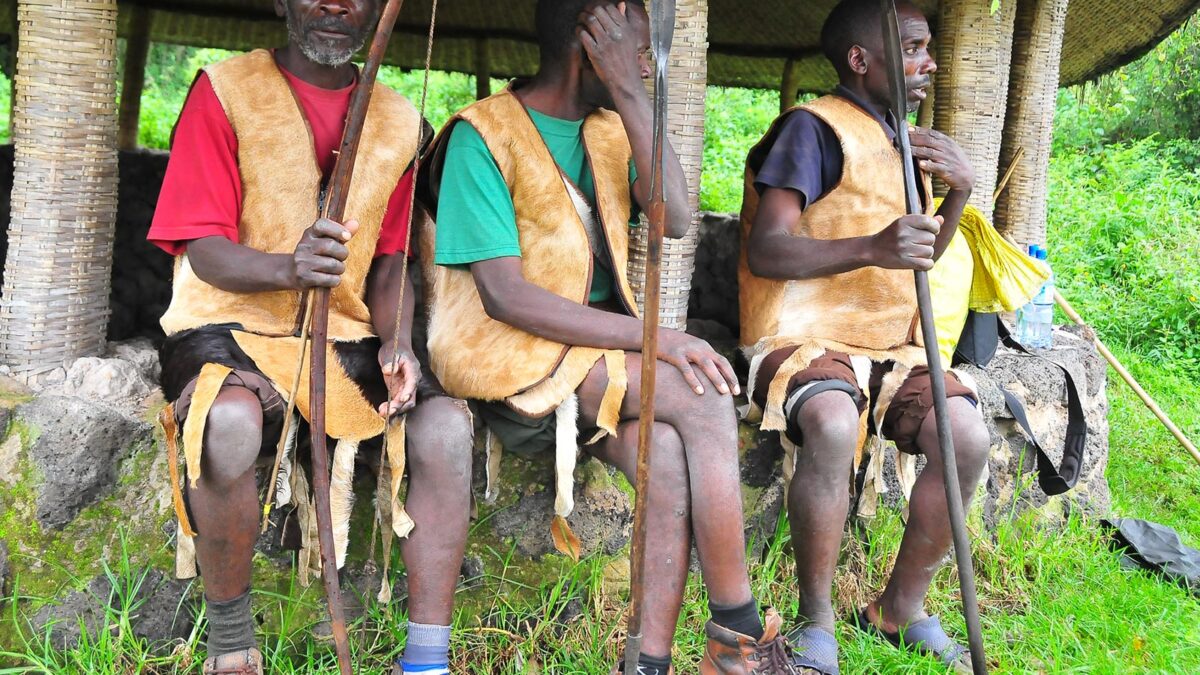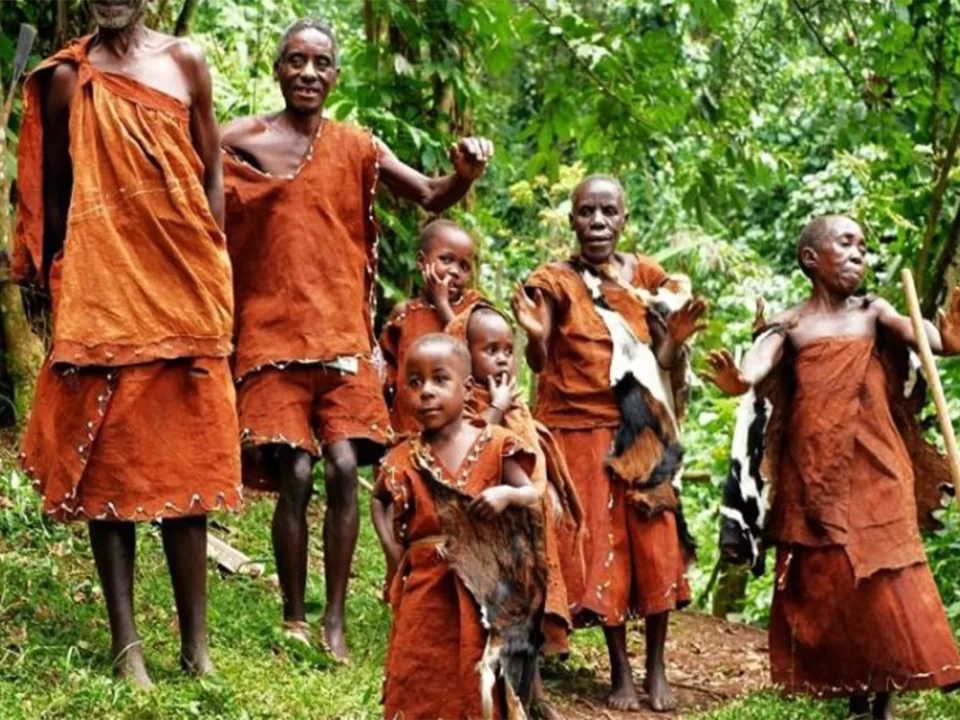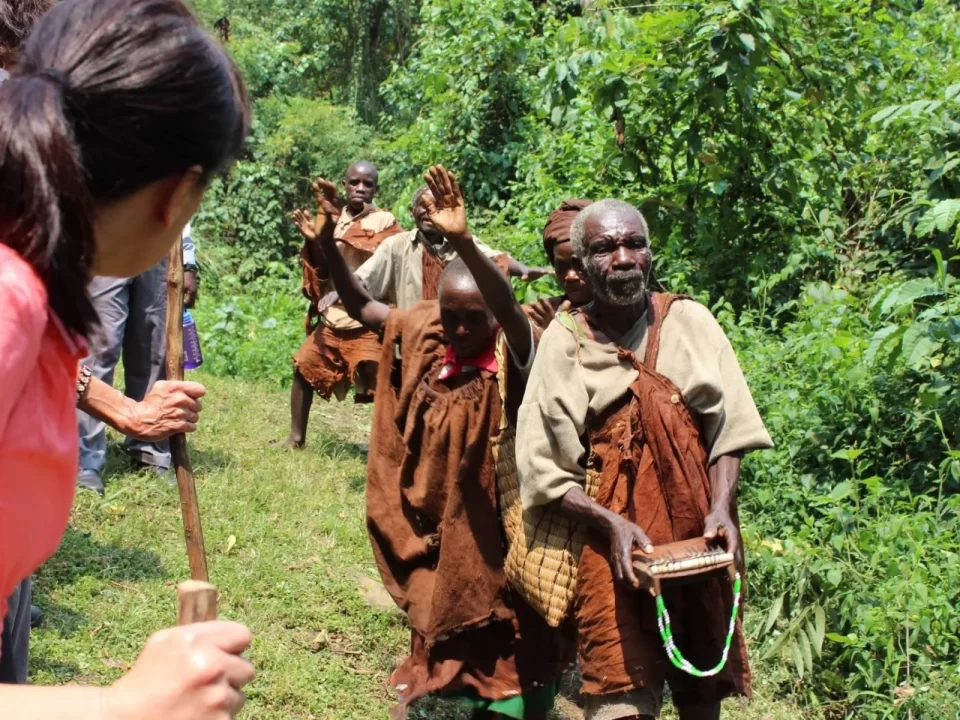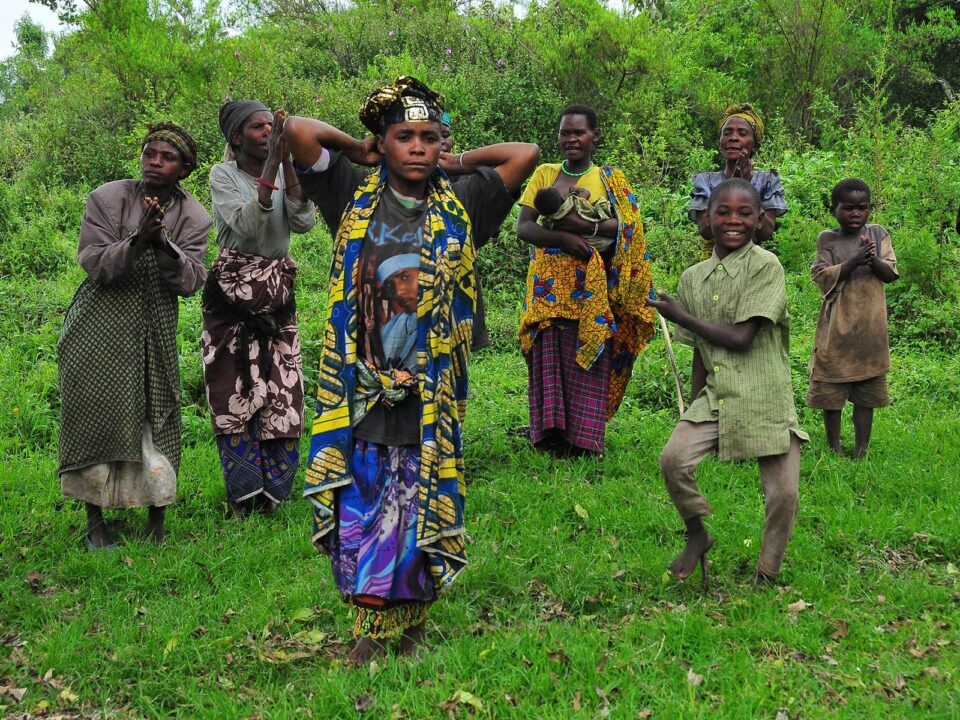Batwa Cultural Experience

Tour Operators in Arua
August 31, 2023
Kyambura Gorge Chimpanzee Tracking
August 31, 2023Unveiling the Batwa Cultural Experience – Immersing in Bwindi’s Enigma
A Glimpse into the Batwa World
In the heart of western Uganda lies the Batwa Cultural Experience, a transformative day trip that beckons curious souls. Beyond a mere outing, it’s a sojourn into the realm of the Batwa pygmies within the embrace of Bwindi Impenetrable National Park. Eroded by changing landscapes, this indigenous community’s ancestral lands have slipped away. Over five profound hours, the Batwa world unfolds before you – savor their cuisine, listen to age-old tales and harmonies, and engage in a simulated hunt with a traditional Batwa bow and arrow. To facilitate this unique encounter, count on Trek Africa Expeditions to curate your visit to the Batwa community within Bwindi’s verdant expanse.
Preserving Heritage Through Experience
The Batwa Experience is not happenstance; it’s a creation of the Batwa themselves. Crafted with purpose, it safeguards an age-old heritage, etching its wisdom into future generations. As you step into their realm, your presence wields financial support and sustains this cherished legacy.
Delving into the Batwa Way of Life
Nestled within the heart of Bwindi’s wilderness, the Batwa Cultural Experience offers a profound immersion into the Batwa’s essence. Amidst your gorilla excursion, a detour is recommended – a Community Walk or the Batwa Trail to Garama Cave in Mgahinga National Park. Here, a direct rendezvous with the Batwa unfolds. These indigenous people once called the forests of western Uganda their home, a domain spanning Bwindi, Echuya, Semliki, and DR Congo’s woods. Traditionally, the Batwa – or pygmies – thrived as hunters and gatherers, relying on bows, arrows, and the bounty of nature for sustenance.
Shifts and Challenges: A Changing Landscape
In 1991, the declaration of Bwindi forest as a National Park and subsequent UNESCO World Heritage Site was a turning point. While safeguarding the endangered Mountain gorillas, this transformation dismantled the Batwa’s forest existence. Eviction from their ancestral lands thrust them into modernity, a transition complicated by their historical unfamiliarity with land ownership.
A Lifeline Extended: From Struggle to Survival
The year 2001 marked a turning point – an awakening to the Batwa’s vulnerability. Dr. Scott Kellerman and the Kellermann Foundation emerged as beacons of hope. Shelter, land, and empowerment initiatives breathed new life into the Batwa’s story. New homes, improved infrastructure, education access, healthcare provisions, and skill development opened avenues to self-sufficiency, with arts like basket weaving and wood carving taking center stage.
Sustaining Traditions, Uplifting Lives
These efforts echo the Batwa‘s intrinsic rights while nurturing the national park’s ecosystem. In this delicate interplay, tourists contribute to the Batwa’s well-being while immersing in the park’s wonder. Initiatives like the Batwa Development Program (BDP), Bwindi Batwa Rock and Cave Settlement Walk, and Mgahinga Gorilla National Park-Batwa Cave Trail spearhead this transformation. Notably, other Batwa communities have found refuge near Semliki National Park and in Kisoro.
Cultural Reawakening: Sharing Traditions with the World
The Batwa Cultural Experience burgeons as a conduit to educate their offspring and share traditions globally. Woven into communities beyond the park’s bounds, this encounter unfurls their traditions. From archery lessons to ancient medicinal insights and forest treks guided by Batwa experts, the experience is a journey of learning and immersion.
Essentials for the Journey Ahead
Before stepping into this transformative journey, a few essentials warrant attention:
- Contributing to Community Welfare: A nominal fee nurtures community projects, from clean water access to education.
- Timing Matters: While flexible, mornings and late afternoons are prime for this experience.
- Evolution of Dwelling: Understand that the Batwa no longer reside in the forest, due to government-mandated resettlements.
- Bridging Cultures: Intermarriage between the Batwa and locals is a noteworthy development.
- Guiding the Way: Expect a local guide to expertly navigate your immersive encounter.
A Tapestry of Traditions and Unity
In essence, the Batwa Cultural Experience is a voyage into a fading realm. It’s a bridge spanning eras, a canvas painted with stories and skills by an enduring people. Beyond individual encounters, it’s a testament to humanity’s unity with nature, an ode to the past and an investment in the future.




